Interest Free Financing Up To 36 Months
WE DO NOT ONLY PUMP YOUR TANK - WE CLEAN IT!
Multiple Financing Options Are Available Up To 36 Months
Interest Free Financing Up To 36 Months
WE DO NOT ONLY PUMP YOUR TANK - WE CLEAN IT!
Multiple Financing Options Are Available Up To 36 Months
You may be committing one of the most common septic tank mistakes and not even know it! Septic tank chemicals are valuable in keeping your system running smoothly and safely. But as a septic customer, it's important to keep up with your septic tank pumping by Septic Blue of Raleigh to prevent costly repairs in the future.
When it comes to thinking about how a septic system works, few people know all the details. That's because most people don't have any reason to think about their septic tank and its workings until there's a problem. Even then, the cause is usually obvious, like too many people flushing or saying goodbye to an old toilet that wasn't working properly. But when thinking of your septic system, you might be surprised at some of the mistakes homeowners and business owners made.
The most common mistake that homeowners make is failing to have their septic tank pumped when it’s needed. The average home has a septic system that needs to be pumped out every three to five years. If yours has not been pumped in over five years, you should call a professional from Septic Blue of Raleigh to inspect the septic tank and determine whether or not it needs pumping. Hopefully, this is resolved before you need an expensive septic tank repair.
Septic systems require maintenance throughout their life cycle. This includes having them inspected and maintained periodically by a professional who will pump out and clean your system as needed.
There are many products on the market that claim they can extend the life of your septic system or help keep it clean without having to have it pumped regularly—but these generally don’t work as advertised, or at all! It is important to remember that additives are meant only for treating wastewater once it has already entered your home’s plumbing system and reached its destination—not for treating wastewater before it enters your home.
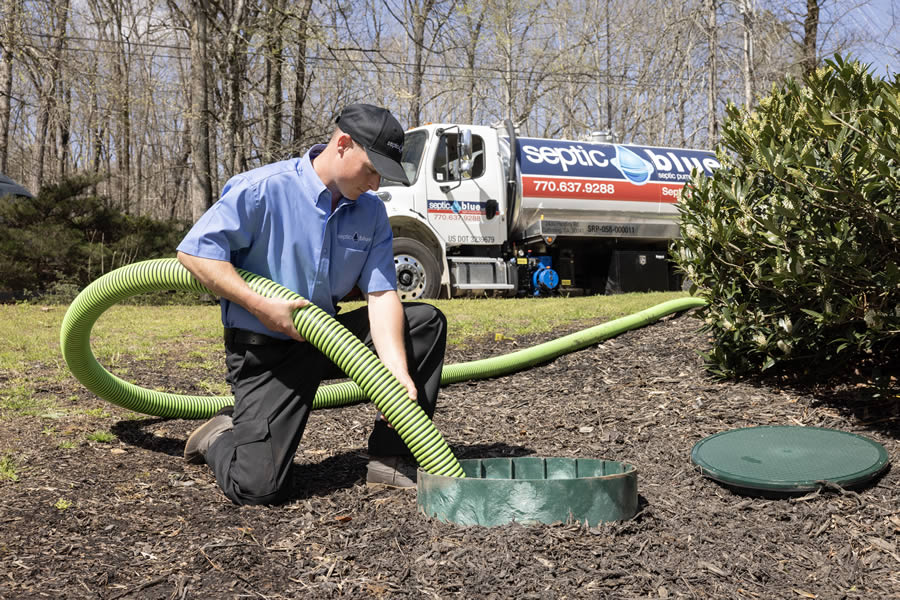
Septic tank pumping in Raleigh has never been so affordable and accessible thanks to the professionals at Septic Blue. We are…
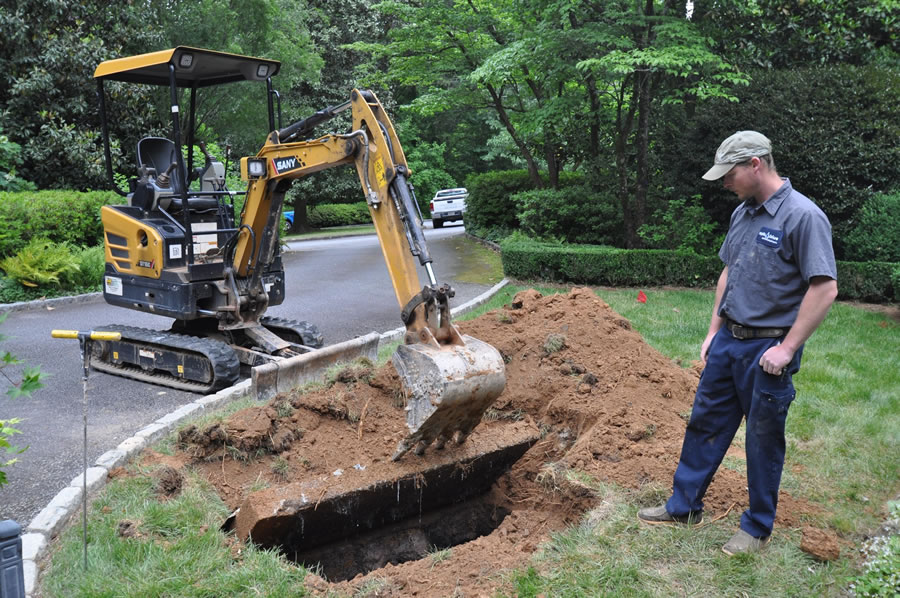
One quarter of Americans rely on septic tanks to process household waste. Most Septic Blue locations have septic tank experts who…
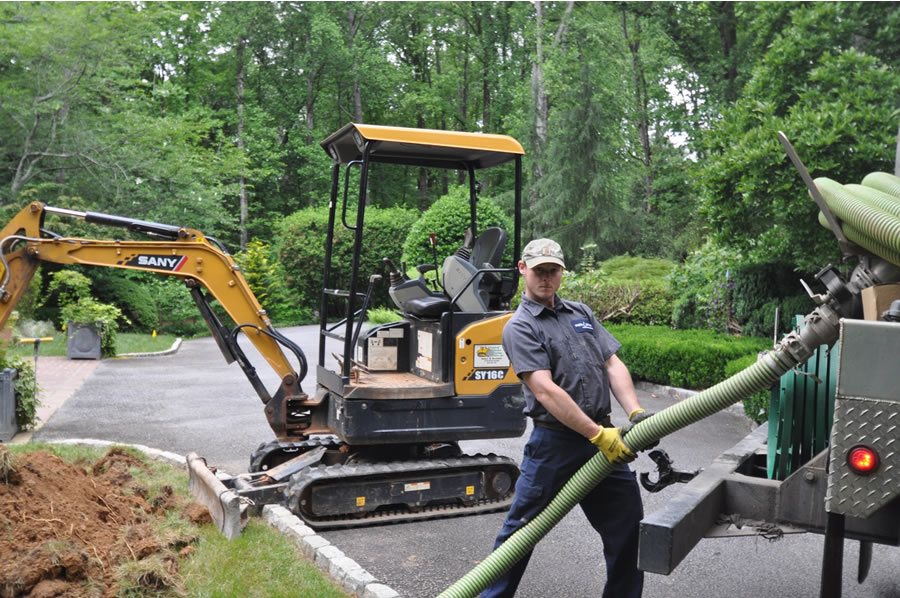
Call Septic Blue today for a second opinion. If you choose to go with Septic Blue, you'll receive $250 off your…
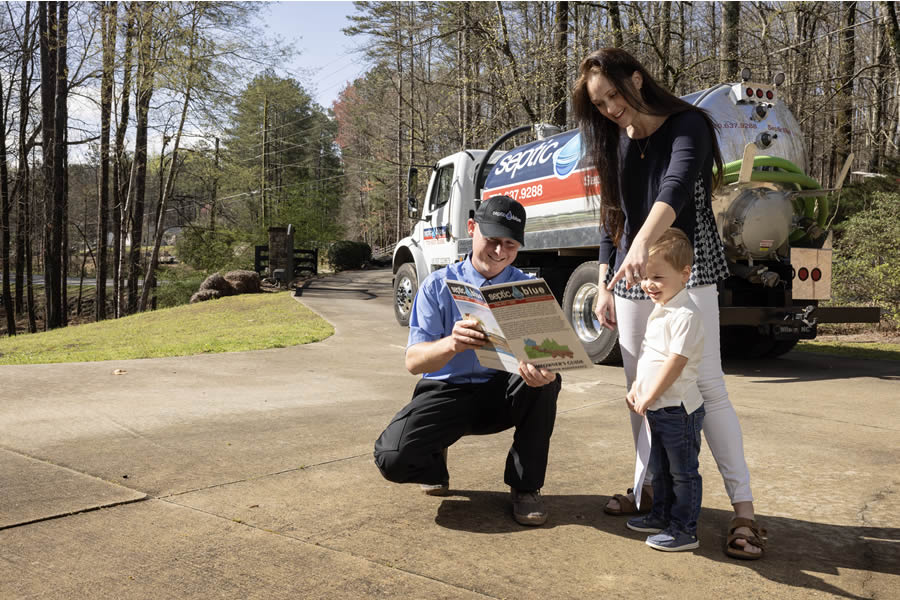
If you are a homeowner or resident in Raleigh that is among the 20 percent of households in the U.S. with…
Professional Saptic Plumbing solutions for every need. Contact Us Today!
Septic systems rely on natural bacteria to break down solid waste. If you put food scraps into your tank, the bacteria will not be able to process them and they will build up at the bottom of the tank, causing odors and clogs. A garbage disposal helps prevent this by breaking down solid waste before it goes into your septic tank.
Flushable wipes are great for cleaning hands, but they aren't good for septic systems because they don't disintegrate quickly enough. If you use these products in your bathroom or kitchen sink, they can clog up your drains and end up in your septic tank. To keep your pipes clear and working properly, throw all wipes away with regular trash or compost them instead of flushing them down the toilet (this is also good for saving water!).
Your septic tank is buried underground for a reason — it needs to be protected from damage and potential contamination. You should never place anything over it that can put stress on the tank or cause any type of damage to it. Doing so could lead to leaks or other issues that could affect the entire operation of your system, which can be costly in terms of repairs and replacements.
Septic tanks should be placed at least 50 feet away from wells, streams, and lakes. If you have a septic system on your property, this is an important consideration. If you need to move your tank closer or farther from a body of water, hire an experienced contractor to help you with the process. A professional can ensure that the new location complies with regulations and protects surrounding areas from any potential damage caused by moving the tank or digging around it.
Backflow prevention systems are designed to prevent wastewater from backing up through your drains and into other areas of your home's plumbing system. They're usually installed near the septic tank or drain field in order for wastewater not to back up into nearby homes or businesses if there's ever a problem with one of these systems.
If you have too much wastewater in your tank at once, it can cause an overflow onto the ground outside of your home. This can lead to damage to landscaping or property damage in general if sewage gets into nearby waterways such as streams or rivers. You should always fill up your tank slowly over time so it doesn't overflow and cause problems later down the line.
Failing to have your septic tank pumped could lead to expensive emergency repairs. Your septic tank is a vital part of your home as it provides a clean water supply and controls water pollution. Pumping your septic tank every 3 to 5 years can save you from many costly problems that can arise from neglecting this important task.
To learn more about the importance of pumping your septic tank, contact us at Septic Blue of Raleigh.
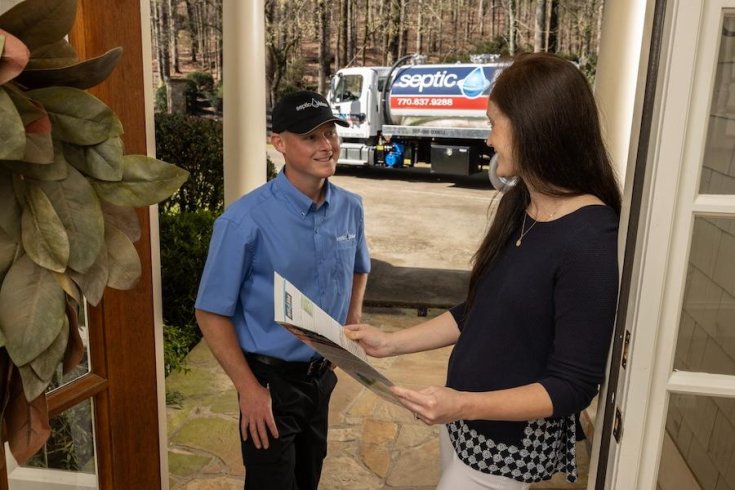
Hiring a septic company in Raleigh, NC involves more than comparing prices or scheduling the earliest appointment. Septic pumping, cleaning,…
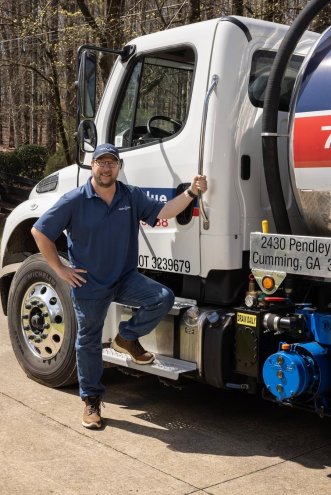
A septic system is designed to move wastewater efficiently from your home into a tank and then into the drain field.…
.webp)
Even if it often fades into the background of daily life, a septic system plays a critical role in keeping your…
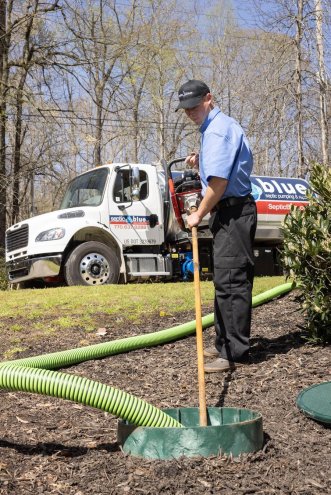
Septic systems play a critical role in protecting your home, health, and surrounding environment. Unfortunately, they're often misunderstood as systems that…